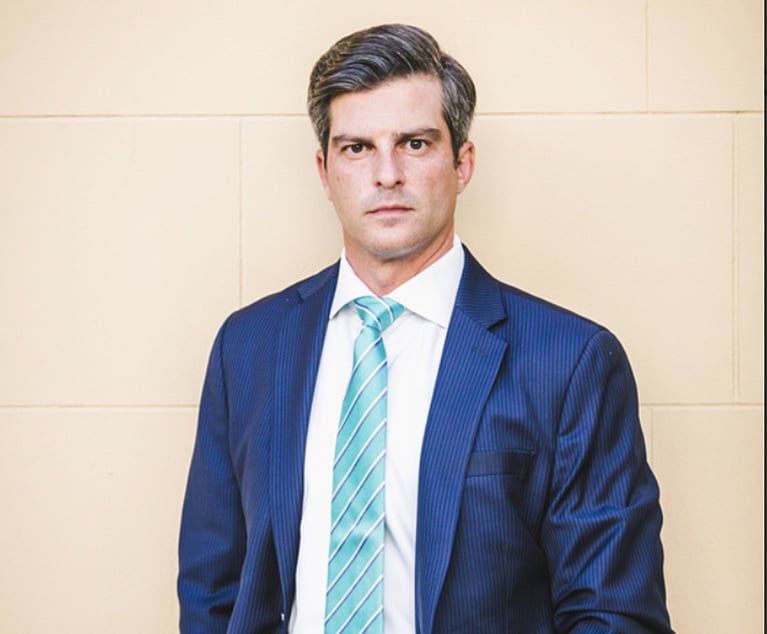Suraj Patel launched an ad campaign recently with two goals in mind: to address hot-button topics and reach young voters who binge-watch streaming services.
“From abortion rights and gun laws to climate change, 1990s Democrats are losing every major battle to Mitch McConnell,” Patel, a Democrat running for Congress in New York, says at the start of the commercial. Moments later, he adds that “Trumpism is on the rise” as images of the Jan. 6 insurrection are displayed on screen.
But while the 30-second ad appeared that way on cable TV and social media, Walt Disney Co.’s Hulu asked for changes. The streaming service suggested replacing those terms with less “sensitive” topics such as taxes, infrastructure or democracy, Patel said in an interview. The attorney and lecturer on business ethics at New York University insisted on keeping the references to abortion and gun laws. After he swapped the word “democracy” for “climate change” and cut the images of the Jan. 6 insurrection, Hulu approved the ad, he said.
Patel’s experience, which was first reported by the website Jezebel, could be a preview of future clashes as the midterm elections near and candidates seek to reach more online viewers. While broadcast channels such as CBS or NBC are required to air candidates’ ads, even if they are controversial or false, streaming services are not.
That contradiction goes back to federal regulations that were created long before the streaming era.
“The rules for broadcast channels were adopted over 50 years ago when we had a different political climate and media climate,” said David Oxenford, a media law attorney with Wilkinson Barker Knauer in Washington.
The fact that streaming services, as well as cable channels and social media platforms, are free to reject campaign ads, especially false ones, could cut down on the spread of misinformation. But it also means candidates may not be able to touch on certain hot-button topics. And it raises thorny questions about how much power media companies should have over political discourse, Oxenford said.
“You give them the right to decide what political opinions get expressed and which ones don’t,” he said. “And that’s a very difficult decision for any media company.”
Disney declined to comment about Hulu’s advertising standards.
The entertainment company has said a new ad-supported version of its Disney+ streaming service coming later this year won’t take political commercials. The company got into hot water earlier this year after opposing a Florida schools bill restricting discussion of sexual orientation and gender identity in younger grades. Gov. Ron DeSantis, a Republican running for a second term, signed legislation eliminating a special municipal district Disney has operated in since the 1960s.
Patel is not the first candidate to have a campaign ad initially rejected. And there’s a history of politicians and companies using those rejections to attract media attention. In May, U.S. Rep. Carolyn Bourdeaux, a Georgia Democrat, said that Hulu turned down her pro-choice ad, which said that she is “leading the fight to protect a women’s right to choose.” Two years ago, CNN’s owner rejected ads from President Donald Trump’s campaign that attacked the election results.
Candidates are pouring more money into streaming services such as Hulu. During the current political cycle, $1.5 billion in political ads is expected to be spent on streaming TV, according to AdImpact. That’s about 17% of the $9 billion total.
There are several reasons for this. Streaming services with commercials, such as Peacock, Tubi, Pluto TV and Hulu, help candidates not only reach a younger audience, but also target them more precisely than traditional TV. Also, more people are ditching their cable-TV subscriptions for streaming and more streaming services are selling commercials.
“My base is going to be relatively younger voters,” Patel said. “It’s very essential that we get the mobilization message out to people in the medium they consume.”
On its ad sales website, Disney says that Hulu’s team reviews ads on a “case-by-case basis” and “content that takes a position on a controversial issue of public importance,” such as social issues, is prohibited.
Another media giant, Comcast Corp.’s NBC, which owns the streaming service Peacock, said any “controversial political or issue ad” must be approved by its standards and policies before airing on its properties.
Earlier this month, Patel said he wrote a letter to Disney Chief Executive Officer Bob Chapek and Hulu President Joe Earley “to express shock” that his initial ad was rejected. In the letter, he cited recent Supreme Court decisions on gun ownership, abortion and carbon dioxide emissions.
“How are voters supposed to make informed choices if their candidates cannot talk about the most important issues of the day?” Patel wrote.
Gerry Smith reports for Bloomberg News.
NOT FOR REPRINT
© 2024 ALM Global, LLC, All Rights Reserved. Request academic re-use from www.copyright.com. All other uses, submit a request to [email protected]. For more information visit Asset & Logo Licensing.


 Credit: Mano Kors/Shutterstock
Credit: Mano Kors/Shutterstock




